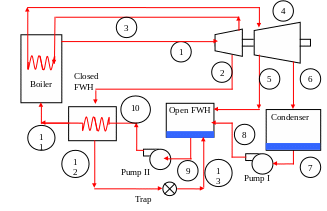REPRINTED WITH PERMISSION BY THE DAILY RECORDER STAYING A
6 REPRINTED FROM THE NADD BULLETIN VOLUME 11 NUMBERDID WOMEN HAVE A RENAISSANCE? BY JOAN KELLYGADOL REPRINTED
GOOSE LAKE FISHES CONSERVATION STRATEGY JULY 1996 REPRINTED JUNE
OCCUPIERS LIABILITY ACT 1962 NEW ZEALAND REPRINTED ACT [WITH
REPRINTED FROM CAPITAL NEWSPAPER MAY 16 2008 THE ROLE
REPRINTED FROM HANDBOOK OF DEVELOPMENTAL PSYCHOPATHOLOGY (2ND ED ARNOLD
Staying a Judgment While an Appeal is Pending
Reprinted with Permission by The Daily Recorder
Staying a Judgment While an Appeal is Pending
In civil cases, an important consideration before starting the appellate process is determining whether you can obtain a stay of execution of the judgment while the appeal is pending. For example, let’s say that in Smith v. Jones, plaintiff Smith has won a judgment of $100,000 against defendant Jones in a California superior court. Jones is planning to appeal the judgment; the question is, can Smith take steps to collect that judgment from Jones while the appeal is pending? The answer may impact whether, as a practical matter, Jones will have sufficient resources to pursue the appeal.
Automatic Stays
Section 916 of the California Code of Civil Procedure states the general rule: “the perfecting of an appeal stays proceedings in the trial court upon the judgment or order appealed from....” While this seems to imply that in most cases, the filing of an appeal stays the judgment, in fact, the opposite is true. There are many exceptions to the rule. See Code Civ. Pro. §§ 917.1-917.9.
Notably, money judgments are not automatically stayed on appeal. See Code Civ. Proc. § 917.1(a)(1). So, using our example above, if Jones files a notice of appeal, that will not prevent Smith from enforcing the judgment for $100,000 against Jones.
If, however, defendant Jones had won instead of plaintiff Smith, and the judgment provided that Jones would be awarded costs of suit, then the judgment would be automatically stayed if Smith filed an appeal. A judgment for costs only is automatically stayed on appeal---except for costs awarded under section 988 of the Code of Civil Procedure. See Code Civ. Proc. § 917.1(d); Nelson v. Stumbos, 226 Cal.App.3d 301, 303-306 (1990); Gallardo v. Specialty Restaurants Corp., 84 Cal.App.4th 463, 468-470 (2000). Another common example of a judgment that is automatically stayed on appeal is a judgment granting a mandatory injunction (i.e., an injunction that compels a party to act, rather than to refrain from doing something).
Obtaining a Stay by Posting an Undertaking
Even if the judgment is not automatically stayed on appeal, a party may obtain a stay of execution by posting a bond or undertaking from a personal or corporate surety, or by depositing cash or negotiable securities with the court. See Code Civ. Proc. § 917.1. Appeal bonds and undertakings are subject to the Bond and Undertaking Law, Code of Civil Procedure § 995.010, et seq.
Jones can therefore obtain a stay of the judgment by posting a bond from a personal surety, such as a friend or relative, if the surety meets the requirements listed in Code of Civil Procedure § 995.510. Alternatively, Jones could obtain a bond from an “admitted surety insurer,” a corporation or insurance company certified to provide surety insurance in California. With a personal surety, Jones would have to post a bond of at least $200,000 (double the amount of the judgment). With an admitted surety insurer, the amount would be $150,000 (one and one-half times the amount of the judgment). See Code Civ. Proc. § 917.1(b).
Since Jones is an individual, obtaining a bond from an admitted surety insurer could be tough. And Jones might not have any friends or relatives with enough money to post a bond of $200,000 (and who are willing to risk losing it). Another alternative is to deposit cash or other negotiable instruments directly with the superior court to stay the judgment. Jones only has to deposit $150,000 with the court, rather than $200,000, because the amount of the deposit must be at least equal the amount that would be required of a bond from an admitted surety insurer. See Code Civ. Proc. § 995.710. Besides cash, the deposit can be made by using Federal or California bearer bonds or notes, certificates of deposit, or savings accounts.
Discretionary Stays and Writs of Supersedeas
If Jones cannot obtain a bond from a personal surety or an admitted surety insurer and cannot deposit $150,000 in cash or negotiable securities with the court, Jones has one other option available: asking the court for a discretionary stay.
Some types of orders or judgments may only be stayed on appeal by a discretionary stay. For example, a child custody or visitation order will be stayed only if the trial court issues a discretionary stay order. The same is true for unlawful detainer actions.
A party seeking a discretionary stay must file a motion in the trial court, and show, with supporting evidence, compelling reasons why the court should issue a stay while the appeal is pending. Note that the court may also require that the appellant post some form of security before a discretionary stay is issued.
If Jones seeks a discretionary stay, but that is denied, then Jones can also file a petition for writ of supersedeas in the appellate court. A writ of supersedeas is a special type of writ that allows the court of appeal to stay proceedings in the trial court to preserve the status quo. There are two requirements before filing a supersedeas petition: the appeal must be pending (a notice of appeal has to be filed) and the appellant must exhaust all available remedies in the trial court first. If the appellant could have obtained a stay from the trial court, the court of appeal will not grant a writ of supersedeas unless the appellant requested a stay and the trial court denied that request.
Writs of supersedeas are granted only if the appellant shows that that irreparable harm will result is no stay is issued, and that the appeal has merit. Irreparable harm can be shown by demonstrating that the appellant will lose the benefits of an appeal if he or she prevails. In a child custody case, for example, an appellant who has lost custody may be able to show irreparable harm because of the loss of custody over an extended period of time could mean that even if the appellant wins the appeal, he or she might not be able to regain custody as the child may have formed strong bonds with the other parent. Another example is an environmental or land use case where the judgment allows a new building project to go forward, which the appellant argues will cause harm to the environment. If no stay is issued, and the appellant wins, but the project goes forward anyway, the lack of a stay may cause irreparable harm as well. Remember that the appellant also must show that the appeal has merit, which means that the appellant must do much of the work involved in an appeal up front.
C. Athena Roussos is an attorney in Elk Grove, California and is certified as an Appellate Law Specialist by the California State Bar Board of Legal Specialization. She also teaches at McGeorge School of Law in Sacramento. Roussos can be reached at (916) 670-7901 or [email protected].
Peg
Carew Toledo contributed to this article. Toledo is Of Counsel at
Mennemeier, Glassman & Stroud LLP, a Sacramento civil litigation
boutique. She is certified as an Appellate Law Specialist by the
California State Bar Board of Legal Specialization. Toledo can be
reached at (916) 551-2592 or [email protected].
REPRINTED WITH PERMISSION BY THE DAILY RECORDER STAYING A
ROLL OF HONOUR (REPRINTED FROM THE PRINCIPAL’S ANNUAL REPORT
THE NEGRO LEAGUES JULES TYGIEL REPRINTED FROM
Tags: daily recorder, staying, reprinted, permission, daily, recorder
- MODELO CONTRATO DE PRESTAÇÃO DE SERVIÇOS CONTRATANTE (PESSOA FÍSICA
- SYLLABUS THE FACULTY OF PHARMACY WITH THE DIVISION OF
- INFORMATION SHEET AND APPLICATION FOR WINTER 2020 APPLICATION DEADLINE
- WYKONAWCY WSZYSCY DA271411421 NOWY SĄCZ DNIA 22 WRZEŚNIA 2021
- ZOO KEEPER FOR THE DAY! OUR ZOO KEEPER FOR
- POSTERIOR STRUCTURES INVOLVED IN SACCADES AND REACHING STRUCTURE IN
- FORM FL‑13 [RULE 1231 AND SECTION 4 OF THE
- A CONTINUACIÓN OS INDICO DOS ENLACES PARA VER DOS
- WEEKEND ACADEMY – REGENTS REVIEW JUNE 2019 CLASS SCHEDULES
- ELECTION FORM FOR PER DIEM CONSULTING & TRAVELTRANSPORTATION
- CLINICAL CARE EXTENDER (CCE) INTERNSHIP PROGRAM PROGRAM OVERVIEW THE
- FEEDBACK ON PROPOSED CHANGES TO THE SRTE STUDENT COMMENT
- FIZIOLOĢIJA – 1KONTROLDARBS VISPĀRĪGI 1 ORGANISMA IEKŠĒJĀ VIDE
- PRÍLOHA Č 3 HODNOTENIE PEDAGÓGOV A ŠTUDIJNÝCH PROGRAMOV PONÚKANÝCH
- REGULAMIN PRAKTYK ZAWODOWYCH INSTYTUT PEDAGOGICZNOJĘZYKOWY PWSZ W ELBLĄGU POSTANOWIENIA
- YAT KAPTANI GEMICILIK TEKNE KULLANMA VE METEOROLOJI 1 BIR
- ZAŁ NR 1 DO ZARZĄDZENIA NR 52016 REKTORA PWSFTVIT
- R BR NAZIV INSTITUCIJE BUDŽET 2018 GODINE UKUPAN GODIŠNJI
- IES JOVELLANOS MATEMÁTICAS REFUERZO PROPORCIONALIDAD 1 DE LOS
- RESOLUCIÓN RECLAMACIONES LISTA PROVISIONAL VOCALÍAS CONSEJO AUTONÓMICO PLURIPROVINCIAL DDÑA
- GLEITENDE ARBEITSZEIT ELEKTRONISCHE ZEITVERWALTUNG DOKUMENTATION ZUR ONLINEANTRAGSVERWALTUNG IM PROGRAMM
- ŽÁDOST SE PODÁVÁ OKRESNÍMU SOUDU PŘÍSLUŠNÉMU PODLE TRVALÉHO BYDLIŠTĚ
- REGULAMIN IX OGÓLNOPOLSKIEGO KONKURSU PLASTYCZNEGO DLA DZIECI „BEZPIECZNIE NA
- CHEMICAL BONDING FOR EACH OF THE FOLLOWING WRITE THE
- BİRİM EKLEME İŞLEMİ İLE İLGİLİ AÇIKLAMALAR 1 BİRİM EKLEME
- WWWNAVARRAES REAL DECRETO 14221992 DE 27 DE NOVIEMBRE SOBRE
- Funciones de “glass City (ciudad de Cristal)” de Teatro
- СУГС ГИМНАЗИЈА ЈОСИП БРОЗ ТИТО СКОПЈЕ ДИПЛОМА ПРОГРАМА НА
- JIM THE FOLLOWING IS REQUIRED IMPROVE SERVER RESPONSE TIME
- CONCURSO – VERIFICACION DE CREDITO INCIDENTE DE REVISION
 8 OSZTÁLY 1 FELADATLAP TITOK TÖRTÉNELEM VERSENY KÓD
8 OSZTÁLY 1 FELADATLAP TITOK TÖRTÉNELEM VERSENY KÓD DECEMBER 2012 TEACHERS GUIDE FOR DIRTY BUSINESS LAUNDRY COMES
DECEMBER 2012 TEACHERS GUIDE FOR DIRTY BUSINESS LAUNDRY COMESARTÍCULO 269D DAÑO INFORMÁTICO EL QUE SIN ESTAR FACULTADO
 ENSC 461 ASSIGNMENT 8 (VAPOR POWER CYCLES) ASSIGNMENT DATE
ENSC 461 ASSIGNMENT 8 (VAPOR POWER CYCLES) ASSIGNMENT DATE HÁSKÓLI ÍSLANDS – KENNARADEILD GSS312G NÁM OG KENNSLA UNGLINGA
HÁSKÓLI ÍSLANDS – KENNARADEILD GSS312G NÁM OG KENNSLA UNGLINGAOPIS TECHNICZNY DO PROJEKTU BUDOWLANEGO ARCHITEKTURY WIATA ODPRAW NA
 Podcasting_for_Language_Learning
Podcasting_for_Language_Learning PIERWSZA PRĘDKOŚĆ KOSMICZNA PIERWSZA PRĘDKOŚĆ KOSMICZNA TO NAJMNIEJSZA POZIOMA
PIERWSZA PRĘDKOŚĆ KOSMICZNA PIERWSZA PRĘDKOŚĆ KOSMICZNA TO NAJMNIEJSZA POZIOMA OBČINA CERKVENJAK OBČINSKA UPRAVA CERKVENJAK 25 2236 CERKVENJAK TEL
OBČINA CERKVENJAK OBČINSKA UPRAVA CERKVENJAK 25 2236 CERKVENJAK TELZAKON O RUDARSTVU (2009) ZAKON O RUDARSTVU SLUŽBENI GLASNIK
 CENTRO DE INVESTIGACIÓN TECNOLOGÍA E INNOVACIÓN UNIVERSIDAD DE SEVILLA
CENTRO DE INVESTIGACIÓN TECNOLOGÍA E INNOVACIÓN UNIVERSIDAD DE SEVILLAUNIVERZA V LJUBLJANI FAKULTETA ZA GRADBENIŠTVO IN GEODEZIJO 1000
2 VALSTS KASEI PIETEIKUMS PAR KLASIFIKĀCIJAS KODU LABOŠANU NR
NA OSNOVU DONEŠENE ODLUKE O POKRETANJU POSTUPKA JAVNOG OGLAŠAVANJA
COMMON RISKS AND RISK MITIGATION ACTIONS FOR A COTSBASED
 EMI ALGEBRA I PLAN GLOBAL DE ASIGNATURA ÁLGEBRA II
EMI ALGEBRA I PLAN GLOBAL DE ASIGNATURA ÁLGEBRA II DOCUMENTO 5 POLÍTICA DE PROTECCIÓN DE DATOS LA FUNDACIÓN
DOCUMENTO 5 POLÍTICA DE PROTECCIÓN DE DATOS LA FUNDACIÓNFYSE 1146 A THE WORLD OF THE ITALIAN RENAISSANCE
PREGUNTAS FRECUENTES AMPLIACIÓN DE ESTUDIOS DE POSTGRADO LA ASESORÍA
 RECOMMENDATION CMREC(2008)2 OF THE COMMITTEE OF MINISTERS TO MEMBER
RECOMMENDATION CMREC(2008)2 OF THE COMMITTEE OF MINISTERS TO MEMBER